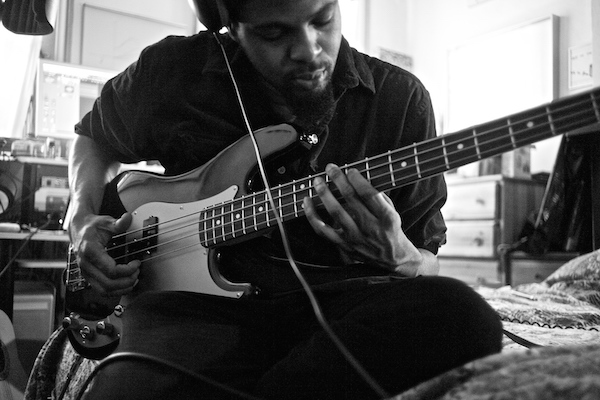Jan 13, 2026 2:09 PM
More Trump-Kennedy Center Cancellations
The fallout from the renaming of the John F. Kennedy Center for the Performing Arts to include President Donald…

Bassist Luke Stewart is among the 25 artists DownBeat thinks will help shape jazz in the decades to come.
(Photo: TSE)The very act of identifying Luke Stewart’s latest project is exhausting. Rarely is there just one.
The prolific bassist began building an international reputation in 2014, when he became a member of tenor saxophonist James Brandon Lewis’ working trio. By that time, however, he was well established as both an artist and a presenter in Washington, D.C., where he arrived at age 19. Gifted and determined, Stewart began to shape the city’s artistic landscape. A cofounder of the jazz advocacy organization CapitalBop, he helped to create a thriving independent scene for jazz and experimental music in a metropolis that didn’t have the institutional infrastructure of New York, Chicago or New Orleans.
Though all his recording projects—including the recent leader date Exposure Quintet (Astral Spirits)—involve free improvisation, they are remarkably diverse. But Stewart doesn’t recalibrate his approach each time out. For him, the new setting provides the direction.
“I want to be totally present for each band,” he said. “Each band is different, and my role in each is different. So, of course I’m going to think about them all differently. If there’s an overriding theme, it might be just following the music.”
That’s not to say that Stewart has no set aesthetic principles. In fact, Exposure Quintet embodies a primary one. All five of its tracks are his compositions, in the sense that he organized them—but he did so by picking out themes, motifs and other frameworks from recordings of the band’s improvisations. The goal is to dissolve the barriers between composer and improviser, especially those that assign greater value to one than the other.
If there’s a hint of the revolutionary in Stewart’s talk of abolishing hierarchies, that’s no coincidence, considering his views on sociopolitical issues in 2020: “During this time, everything’s up for review—even the fundamental basis of how we perceive music, and some of the oppressive influences that have been imposed on those perceptions.” DB
This story originally was published in the November 2020 issue of DownBeat. Subscribe here.

Belá Fleck during an interview with Fredrika Whitfield on CNN.
Jan 13, 2026 2:09 PM
The fallout from the renaming of the John F. Kennedy Center for the Performing Arts to include President Donald…

Peplowski first came to prominence in legacy swing bands, including the final iteration of the Benny Goodman Orchestra, before beginning a solo career in the late 1980s.
Feb 3, 2026 12:10 AM
Ken Peplowski, a clarinetist and tenor saxophonist who straddled the worlds of traditional and modern jazz, died Feb. 2…

The success of Oregon’s first album, 1971’s Music Of Another Present Era, allowed Towner to establish a solo career.
Jan 19, 2026 5:02 PM
Ralph Towner, a guitarist and composer who blended multiple genres, including jazz — and throughout them all remained…

Rico’s Anti-Microbial Instrument Swab
Jan 19, 2026 2:48 PM
With this year’s NAMM Show right around the corner, we can look forward to plenty of new and innovative instruments…

Richie Beirach was particularly renowned for his approach to chromatic harmony, which he used to improvise reharmonizations of originals and standards.
Jan 27, 2026 11:19 AM
Richie Beirach, a pianist and composer who channeled a knowledge of modern classical music into his jazz practice,…